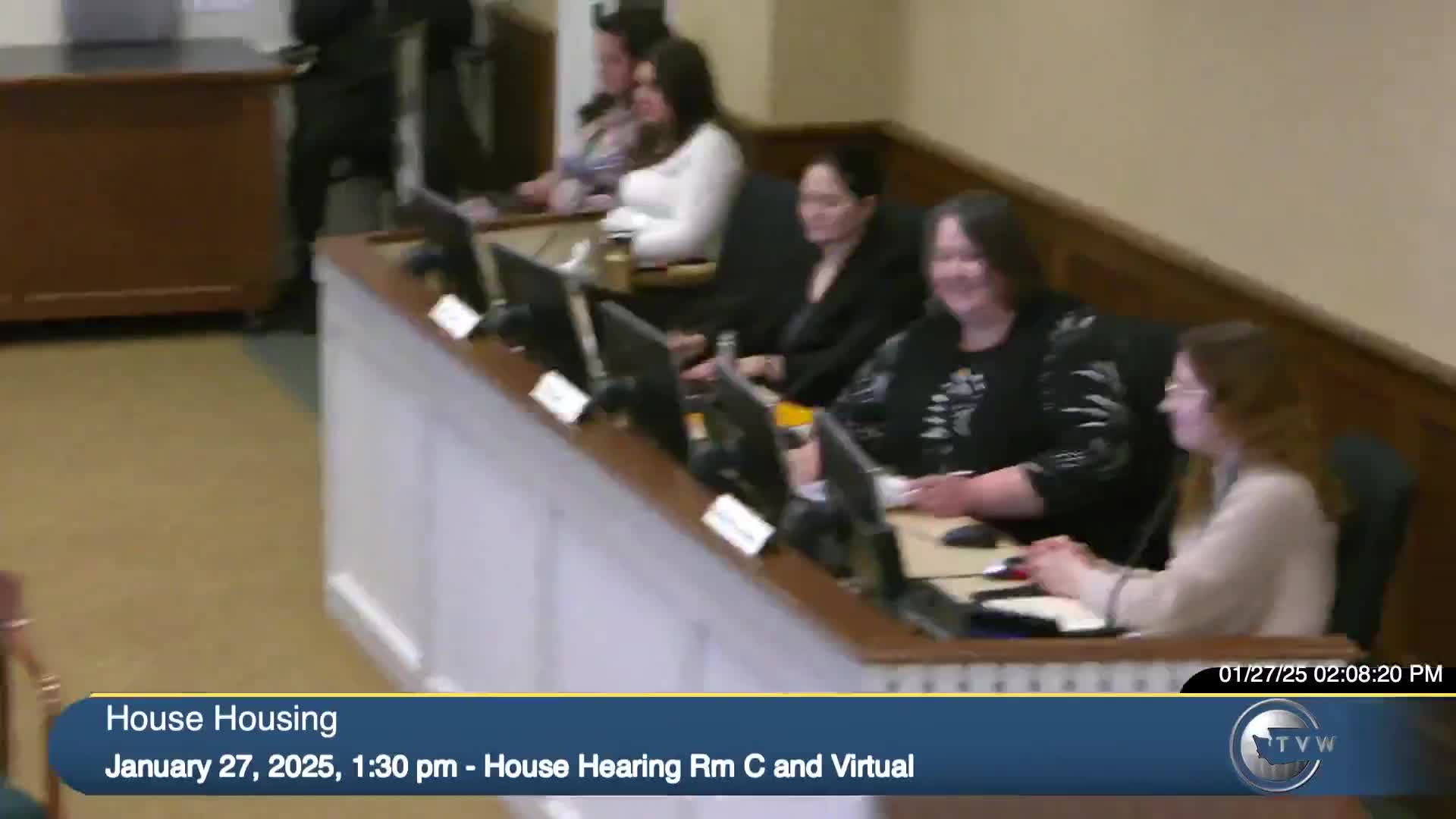Committee hears substitute proposal to allow one mobile dwelling per lot in UGAs with hookup rules
Get AI-powered insights, summaries, and transcripts
Subscribe
Summary
A proposed substitute for House Bill 1443 would require fully planning cities and counties to allow at least one mobile dwelling unit (MDU) on qualifying residential lots in urban growth areas and establish hookup, plumbing and siting conditions; testimony mixed on public-health and utility impacts.
Committee staff described a proposed substitute to House Bill 1443 that would define "mobile dwellings" and require fully planning cities or counties to allow at least one such unit on a qualifying residential lot located inside an urban growth area.
Serena Dolly, staff to the committee, briefed members on the substitute offered by Representative Gregersen. Under that draft, a mobile dwelling includes travel trailers, folding camping trailers, motor homes and fifth wheels. The substitute requires a lot to have at least one existing housing unit, be in a UGA, be able to be served by water, sewer, stormwater and transportation, and not be located in designated critical areas, natural resource lands or shorelines. "The mobile dwelling must be connected to electrical service through a dedicated outlet," Dolly said, and if the mobile dwelling has internal plumbing it must be connected to water and sewer; otherwise the occupants must have access to water and toilet and shower facilities in an existing housing unit on the lot.
Sponsor Representative Gregersen described the policy as a rapid, lower-cost housing option that builds on the legislature’s work to expand housing supply. "This is very fast," Gregersen said of MDUs compared with ADUs, and he emphasized the bill would use existing permitting and building-code frameworks used for RV parks and hookups.
Proponents said MDUs can be substantially cheaper and quicker than conventional housing. Dan Bertolay of Sightline Institute testified that MDUs can be deployed rapidly to provide lower-cost housing choices and bridge a gap beneath even the lower end of ADU prices. "Costs vary, but at the low end a fully installed MDU could come to as little as $20,000 to $30,000 set up in a matter of weeks," he said. Cole Peterson, a Portland contractor, said his experience in Oregon showed few enforcement or code problems since Oregon's legalization in 2021; he estimated hookups typically cost $10,000–$15,000 and tiny homes on wheels usually range from $50,000–$75,000.
Several municipal and utility witnesses urged caution and asked for more technical detail. Joren Clowers of the Snow King Water District Coalition warned of cross-connection and backflow risks when mobile dwellings use pressure systems and chemicals, and he said sewer cleanout hookups could increase blockages and backups. Carl Schroeder of the Association of Washington Cities asked for clarification on whether the bill establishes permanent authority or only temporary allowances; he also asked whether the state building-code council should develop unit standards and questioned the bill’s prohibition on inspection of the mobile dwelling itself (the substitute inspects connections but not the MDU interior).
Kelsey Hulse of the Washington State Association of Counties said health and potable water certification by local public-health authorities should be required before outdoor spigots are used for drinking water. Several witnesses raised concerns about connection fees, which can be significant in some systems and would affect affordability estimates.
Advocates for veterans and people with disabilities described existing programs that subsidize MDUs and operate successfully. Joe Wykowski, formerly of Community Vision in Portland, said a program that used foundation and public grants created MDUs that rent for about $400–$500 per month in backyards and provided stable housing for people with disabilities; he estimated development costs at roughly $60,000–$80,000 per unit before subsidy.
Several committee members pressed witnesses for Oregon experience and for data about utility impacts. Witnesses said Oregon municipalities’ experience and informal pilot programs suggest few enforcement problems but also urged development of clear connection and public-health standards to ensure safe hookups and prevent unintended utility damage.
The public hearing concluded after a broad panel of proponents and cautious stakeholders testified; committee staff and stakeholders said they would continue working on technical clarifications around potable-water certification, sewer connections and billing/connection fees.
